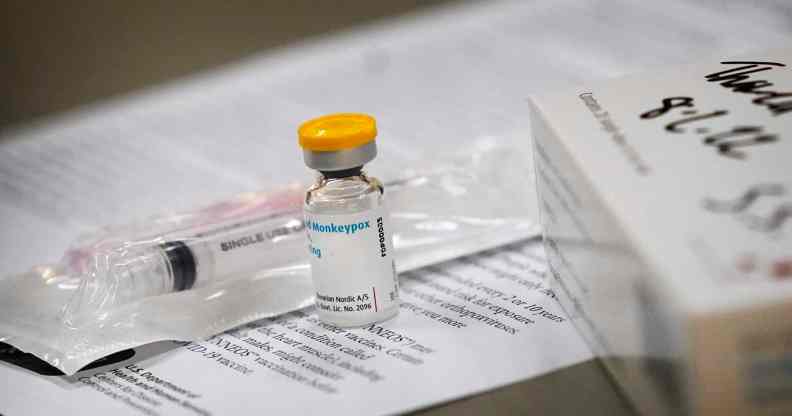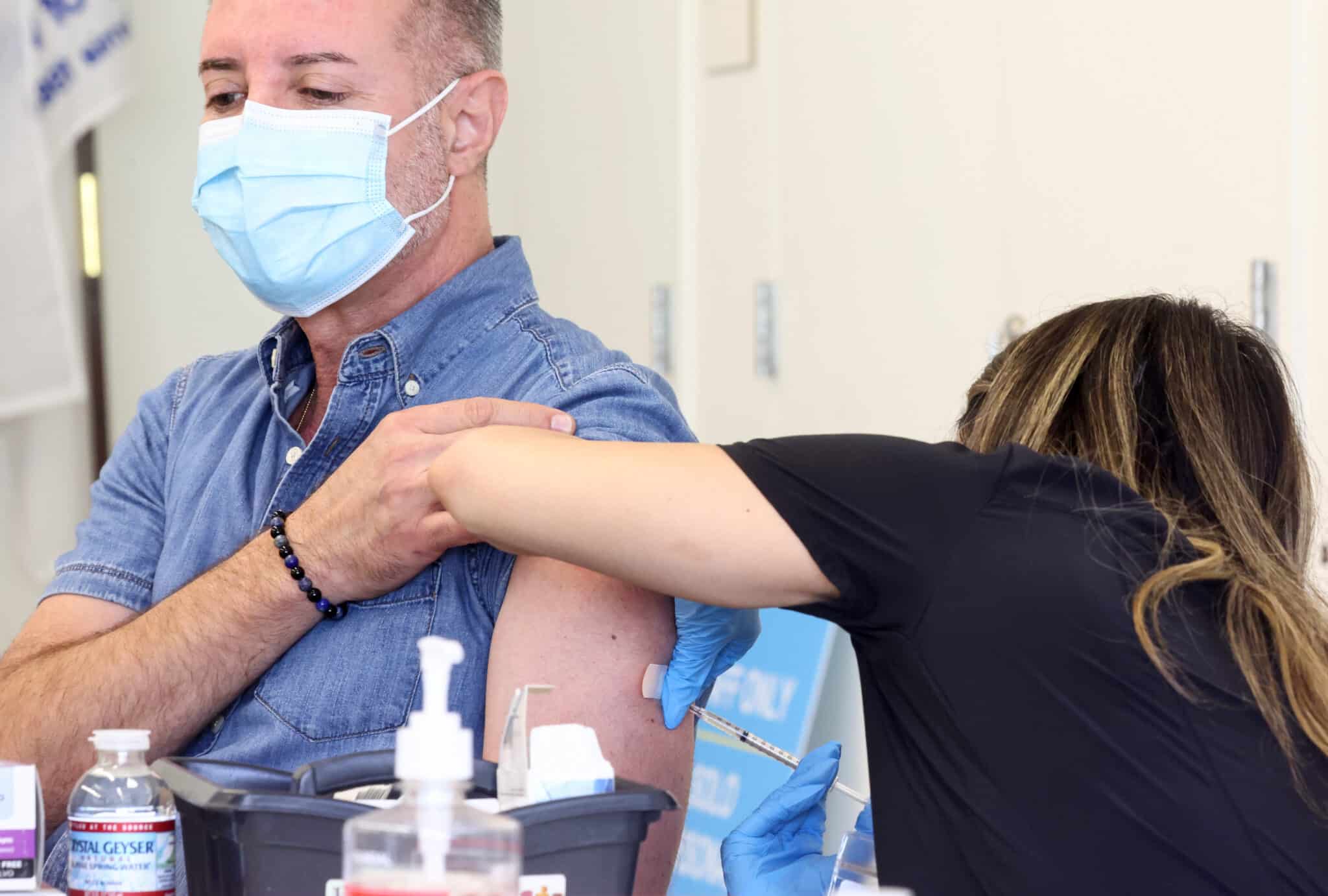Monkeypox vaccine: Australia secures 450,000 doses as EU struggles to roll out jab

A vial of the monkeypox vaccine sits on a table during a media tour of the monkeypox clinic operations. (David Joles/Getty)
The Australian government is to import 450,000 monkeypox vaccine doses to help tackle a rise in cases.
Health minister Mark Butler told reporters on Thursday (4 August) the government had negotiated at least 450,000 doses of the third-generation Bavarian-Nordic vaccine to be prioritised for specific at-risk groups including gay and bisexual men.
The government began negotiating vaccine distribution on 20 May, according to Butler, just one day after the first confirmed case in Australia.
At the current time of reporting, the US Centers for Disease Control and Prevention (CDC) estimates that at least 53 cases of the disease have been reported in Australia
While cases may seem low right now, Butler assured the public numbers had “increased quite quickly” around the world, with countries like the US currently seeing cases reach more than 6,000, and more than 4,000 in Spain.
While Australia has secured 450,000 doses, other countries are struggling to roll out the vaccine.
The EU has purchased just 163,000 vaccines through its central Health Emergency Preparedness and Response Authority (HERA). France has purchased 250,000, with the UK having purchased just over 100,000.
On Friday (5 August) LGBTQ+ representatives from all major UK political parties urged the government to start taking monkeypox more seriously.
Australia declared monkeypox a “communicable disease incident of national significance” on 28 July, just days after the World Health Organisation declared it a global health emergency.
Butler said that the first 100,000 doses are expected to reach Australia over the remaining months of 2022, with 22,000 arriving this and next week. The remaining 350,000 will be distributed in 2023.
He said the vaccine was “by far the most effective and user-friendly for patients with compromised immunity” and could also be administered in vulnerable groups such as pregnant women, children, and those with pre-existing conditions.
“I’m very pleased with the work the chief medical officer and the department have been able to do in a short period of time, particularly to secure the supply of vaccines in a highly contested global market,” he continued.

Patient receives a dose of the monkeypox vaccine at a pop-up vaccination clinic. (Mario Tama/Getty)He also warned against “stigma and discrimination” after several misinformed pundits had suggested monkeypox was a “gay disease” and is only sexually transmitted. The CDC reports researchers are still determining whether the disease can transmit sexually and have not referred to it as an STI.
UK Health Security Agency (UKHSA) epidemiologist Mateo Prochazka told PinkNews in May that the “discourse around this infection is going to become more prevalent and intersect with discourses that are homophobic”.
“Gay and bisexual men usually have larger numbers of sex partners and are more likely to have anonymous sexual partners as well,” he said, “and this can lead to direct contact that may not be seen in other sexual networks with the same frequency”.
“It might be that the pathogen has now entered those networks and is being spread that way. It does not mean that gay or bisexual men are doing anything inherently wrong, or that the virus has changed or that it’s sexually transmitted, it just means that this behaviour facilitates transmission in these networks.”

